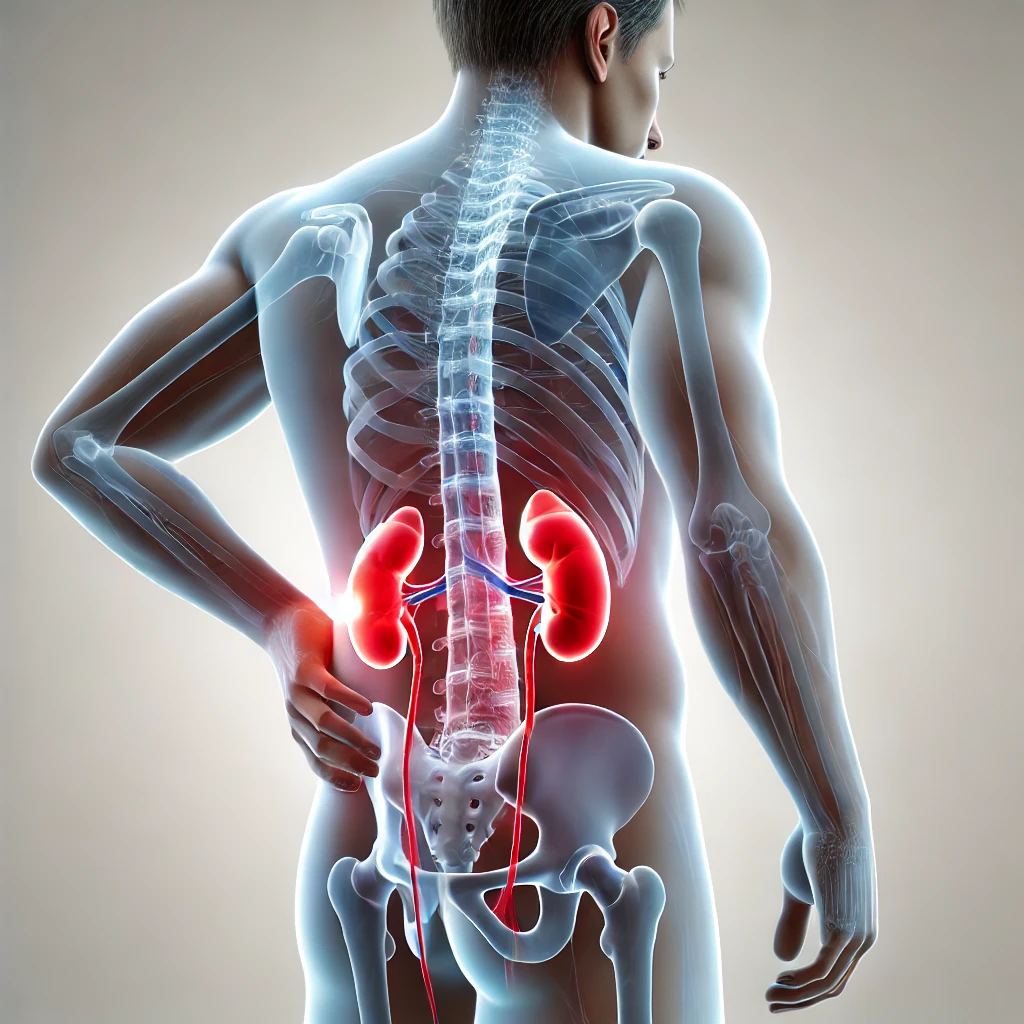1. Hypertension (High Blood Pressure)
High blood pressure is one of the leading causes of kidney disease in Lagos. As the heart pumps blood through the body, the force of the blood against the walls of the arteries can cause damage over time. When untreated, this damage extends to the kidneys, leading to a reduced ability to filter waste. High blood pressure is prevalent in Lagos due to urban stress, lifestyle habits, and irregular medical check-ups.
Prevention Tips:
- Regular monitoring of blood pressure.
- Eating a balanced diet low in salt.
- Engaging in physical activity.
- Managing stress.
2. Diabetes
Diabetes is another major contributor to kidney failure. Uncontrolled blood sugar levels over time can damage the blood vessels in the kidneys, impairing their ability to function properly. The increasing prevalence of diabetes in Lagos, often due to poor diet, lack of exercise, and genetic factors, means that more people are at risk of developing diabetic nephropathy, a type of kidney disease caused by diabetes.
Prevention Tips:
- Maintaining a healthy weight.
- Monitoring blood sugar levels regularly.
- Adopting a diabetes-friendly diet.
- Staying active to prevent type 2 diabetes.
3. Infections (Urinary Tract Infections & Kidney Infections)
Chronic or untreated urinary tract infections (UTIs) can lead to more serious kidney infections (pyelonephritis) and, eventually, kidney failure. In Lagos, poor sanitation, limited access to clean water, and overcrowding in some areas can contribute to the spread of these infections. Women, in particular, are more susceptible to UTIs, which can progress to kidney infections if not treated early.
Prevention Tips:
- Drinking plenty of water to flush out bacteria.
- Practicing good hygiene.
- Seeking medical attention at the first sign of urinary tract infections.
4. Chronic Use of Painkillers, Herbs and Non-Steroidal Anti-Inflammatory Drugs (NSAIDs)
In Lagos, over-the-counter painkillers like ibuprofen and diclofenac are commonly used for pain management, often without proper medical guidance. Chronic use of NSAIDs can lead to kidney damage, especially if taken in large doses over time. Individuals who use these medications for joint pain, headaches, or self-medication without consulting a doctor are at higher risk of developing kidney issues.
Prevention Tips:
- Avoiding excessive use of painkillers.
- Consulting a healthcare provider before using any medication long-term.
- Exploring alternative treatments for pain management.
5. Poor Diet and Lifestyle Choices
In Lagos, where fast food culture is becoming increasingly popular, many individuals have poor diets that are high in salt, sugar, and unhealthy fats. These dietary choices contribute to both hypertension and diabetes, two of the leading causes of kidney failure. Additionally, the sedentary lifestyle that accompanies urban living in Lagos — long hours spent in traffic, less time for exercise, and more time indoors — further exacerbates the problem.
Prevention Tips:
- Reducing the intake of processed foods, sugar, and salt.
- Eating more fruits, vegetables, and whole grains.
- Incorporating regular physical activity into daily life.
6. Obesity
Obesity is another risk factor that has been on the rise in Lagos, due to poor dietary habits, sedentary behavior, and increasing urbanization. Obesity is directly linked to conditions like diabetes, hypertension, and cardiovascular disease, all of which increase the risk of kidney failure.
Prevention Tips:
- Achieving and maintaining a healthy weight through balanced eating and regular exercise.
- Seeking professional help to manage weight effectively.
7. Genetic Factors and Family History
Certain genetic conditions, such as polycystic kidney disease (PKD), can increase the likelihood of kidney failure. While lifestyle factors play a significant role, family history is an important consideration in assessing risk. People with a family history of kidney disease should undergo regular kidney function check-ups, even if they do not yet show symptoms.
Prevention Tips:
- Regular screening if there is a family history of kidney disease.
- Early detection and management of potential issues.
Early Detection and Prevention:
The key to managing kidney failure is early detection. Routine screening for blood pressure, blood sugar, and kidney function can help identify potential problems before they lead to kidney failure. Additionally, adopting a healthy lifestyle, including proper diet, regular exercise, and avoiding harmful habits, can significantly reduce the risk of kidney disease.
For individuals in Lagos, it is essential to have access to healthcare, education on kidney health, and resources to manage chronic conditions effectively. Public health campaigns aimed at raising awareness about the causes and prevention of kidney disease could play a crucial role in combating the rising rates of kidney failure.
Conclusion:
Kidney failure is a serious concern in Lagos, with multiple causes ranging from hypertension and diabetes to poor diet and lifestyle choices. By understanding the risk factors and adopting preventive measures, individuals can protect their kidney health and improve their quality of life. Regular check-ups, a balanced diet, and avoiding self-medication are all crucial steps in preventing kidney failure and ensuring early intervention when necessary.
If you're concerned about your kidney health, consult a healthcare professional for advice and regular screenings. Early detection saves lives.
